


Chapter Thirteen:
Crises and Conspiracy
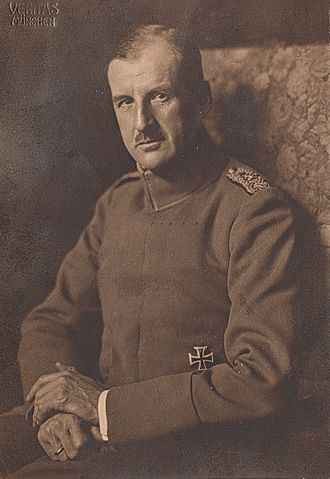
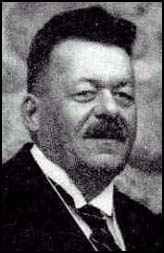
Compatriots! Based upon military power, a foreign nation is about to violate the right of self-determination of the German people. Again, one of Germany's adversaries invades German territory. The policy of might and force, which since the conclusion of peace has been violating the treaties and trampling on human rights, threatens the principal German economic district, the main source of Germany's labor, the bread of German industry and the entire working classes . . . . The French move is a continuation of wrong and violence and a violation of the treaty aimed at a disarmed and defenseless nation. 3
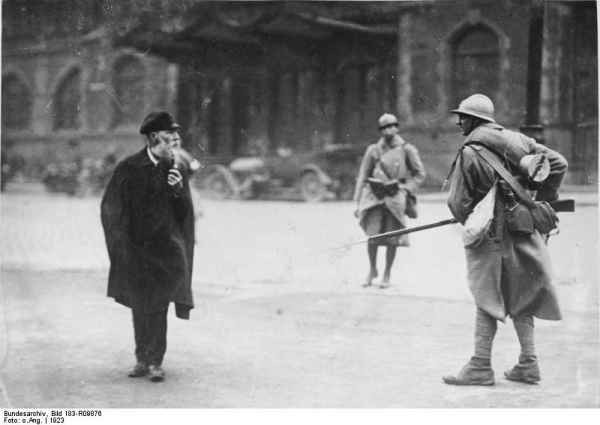
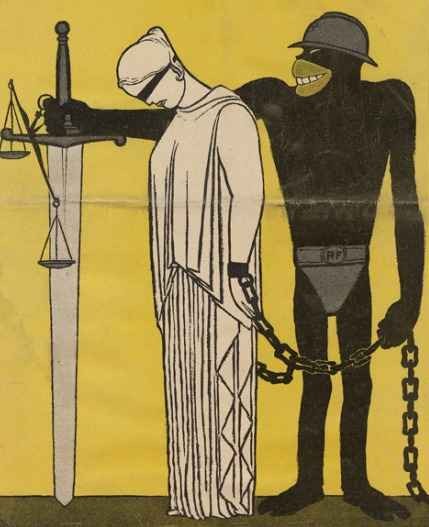
[Nortz will write that Hitler] rejected this flatly and said, no, he would in no case do that . . . . He was going to do nothing more in the matter . . . . Up until now he had kept his people, especially the Storm Troops, under control. Now they could do whatever they wanted and then the government could just see what would develop . . . . The government could shoot; he'd place himself at the head of the group, and they could shoot him down; but he could tell them that the first shot would unleash a red flood; and what would come then, they would see; and two hours after the first shot, the government would be finished. 12
1923 January 26 From Major General Allen's Diary: "The mark has dropped two thousand points in twenty minutes—probably due to strike news. 10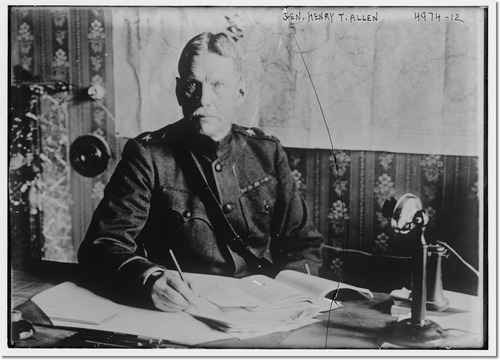
A British staff official just returned from Dusseldorf reports that yesterday the French general commanding the line of communications ordered a locomotive and one car to be placed at this British official's service, to take him from Dusseldorf to Neuss, but that, while there were many locomotives and cars idle, no one was available competent to operate the complicated switch and signal system through the Dusseldorf yards; that after two hours of hard work French engineer troops had managed to get the locomotive past five switch points, but that, since there were eight more to pass before the train could get on to the main line, the effort was abandoned as futile. This illustrates how hopeless must be the effort to operate the complicated agencies of a highly organized industrial area against resistance even of the passive sort. It would appear that the effort cannot succeed until the Germans become worn down and hungry and succumb to siege tactics. 13
Novelist Lion Feuchtwanger wrote: "Germany was an industrial country, and the Ruhr the heart of its industry. Whoever held the Ruhr held the heart of Germany in the hollow of his hand. But to have possession of that heart was only profitable so long as it beat." 14We won't stage a Putsch, we won't bring along any weapons, we'll come unarmed—but we will come! (frenzied applause). And then you can shoot into our midst, if you can find German soldiers who will shoot German men who want nothing more than to confess to being Germans on German soil! (frenzied applause) . . . . We know that later generations will say: The National Socialists of 1919-1923, or perhaps 1924, established the basis for the re-strengthening of Germany, out of which the lightning emerged that annihilated France! (with an impassioned crescendo—raging applause). 17
Professor Karl Alexander von Mueller, as one of the instructors of an army political indoctrination course, had become acquainted with Adolf Hitler in 1919. He has followed with interest the political rise of his former student, but had never before been to an NSDAP meeting. Having attended one of the 12 meetings Hitler addressed during the rally, von Mueller will later write an account:
How many political meetings had I attended here in this hall! But neither during the war nor during the revolution had a scorching breath carried such a hypnotic mass excitement toward me, when entering. It was not only the special tension of these weeks, of this day. "Special battle songs, special flags, special symbols, a special greeting [Heil!] . . . . "
A forest of fiery red flags with a black swastika on white ground; the strangest mixture of military discipline and revolution, of nationalism and socialism—even in the audience: the majority are the sinking middle class, with all its layers—will it be fused together? . . . . suddenly, at the entrance at the back, movement. Shouts of command. The speaker at the podium stops in the middle of a sentence. Everybody jumps up shouting "Heil." And through the shouting crowd and through the screaming flags comes the expected Hitler to the platform with his followers, at a brisk pace, his right arm rigidly raised. He passed me very closely and I saw: that man was different from the person I had occasionally met in private homes: the sharp pale features as if contorted by an obsessed wrath, with cold flames leaping from his bulging eyes, which seemed to look to the right and left for enemies so as to overwhelm them. 18
Hitler, going from meeting to meeting, is received with enthusiasm. He is an extraordinary person. An artist turned popular prophet and savior, is the way members of the audience described him to me, as we awaited for him to appear. A young man stepped on the platform and acknowledged the long applause. His speech was intense and brief; he constantly clenched and unclenched his hands. When I was alone with him for a few moments, he seemed hardly normal; queer eyes, nervous hands, and a strange movement of the head. He would not give an interview—said he had no use for Americans. 19
1923 January 29 Since the Coburg incident, Kurt Ludecke has been raising, with his own funds, a 100-man militia, with the intention of presenting it to Hitler to be incorporated into his SA.Kriminal-Kommissar Rupprecht was a rather gentle old man whose good manners set him apart from the rest of the police so sharply that I mistrusted him all the more at first, though he gave every sign of friendly feeling toward me . . . . He was conveying to me clearly enough that denunciations against me had come from Nazis, as well as from our antagonists . . . . [Rupprecht told me] "I am not permitted to tell you what is in the record, but those whom you have so warmly defended in each of our interviews have not always done the same for you. If you will take an old-timer's advice, you will think twice before you decide what to do after you are out of here." 20
1923 January 29 At 11:00 a.m. on the morning of the second day of the rally, Hitler reviews two thousand party troops, and four thousand party members, on the Marsfeld. The centerpiece of the ceremony, which is held in a blinding snow storm, is the dedication of SA banners for newly created units. From a New York Tribune article on the rally:
Hitler, surrounded by his staff, addressed his army, calling upon them to hold themselves in readiness for the "final, decisive conflict . . . . Either the National Socialist German Workers' Party is the coming movement in Germany, in which case not even the Devil himself can stop it, or it is not, and deserves to be destroyed!"
[Hitler said] "No member of that race which is our foe and which has led us into this most abject misery, no Jew shall ever touch this flag. It shall wave before us throughout all of Germany in the march to victory, and pave the way for the flag of our new German Reich . . . . take a solemn oath to carry the flag to victory, both in Berlin and on the Rhine." 21
The people, buying frantically in their flight from the mark, dared not retain currency for an hour. That explains the false prosperity which kept industry humming during the inflation years. There was little unemployed labor at a time when England already had millions out of work. Owners of buildings and homes, not knowing what to do with their marks, would order perhaps a new annex or general repairs—anything to get some value out of the tumbling currency. 23

Within the Party, as small as it was, he [Hitler] had made a special selection of these people who were convinced followers, and who were ready at any moment to devote themselves completely and unreservedly to the dissemination of our idea [the SA]. He said that I knew, myself, how strong Marxism and communism were everywhere at the time, and that actually he had been able to make himself heard at meetings only after he had opposed one physical force disturbing the meeting with another physical force protecting the meeting; for this purpose he had created the SA. The leaders at that time were too young, and he had long been on the lookout for a leader who had distinguished himself in some way in the last war, which was only a few years ago, so that there would be the necessary authority.
He had always tried to find a Pour le Mérite aviator or a Pour le Mérite submarine man for this purpose, and now it seemed to him especially fortunate that I in particular, the last commander of the "Richthofen Squadron," should place myself at his disposal. [Note: The Pour le Mérite was the highest military order awarded to German soldiers from 1740 until the end of WWI.] I told him that, in itself, it would not be very pleasant for me to have a leading part from the very beginning, since it might appear that I had come merely because of this position. We finally reached an agreement that for 1 to 2 months I was to remain officially in the background, and take over leadership only after that; but actually I was to make my influence felt immediately. I agreed to this, and in that way I came together with Adolf Hitler. 25
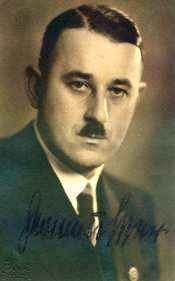
The wedding cake is presented: "an effigy of Adolf Hitler, made of marzipan and surrounded by sugar roses!" Reluctant to mutilate Hitler's face, the Nazis cautiously slice themselves only "a small morsel, taking great pains to avoid defacing the effigy." When Hitler is requested to speak, he declines: "I must have a crowd when I speak," he admits. "In a small, intimate circle I never know what to say. I should only disappoint you all, and that is a thing I should hate to do. As a speaker either at a family gathering or a funeral, I'm no use at all." 27
1923 Between February and November, the NSDAP will gain 35,000 members, and the SA will grow to a total strength of 15,000. The party now has assets of 173,000 gold marks. 28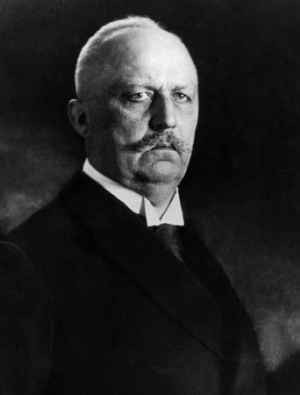
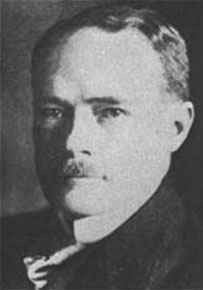
But he [Eckart] couldn't resist the temptation to telephone right and left. Already by the second day, he was clamouring that his girlfriend Anna should go and visit him. "I'm incapable of hiding," he used to say . . . .
One day, Röhm telephoned me, asking me to go and see him immediately at the office of our military administration. There was a "wanted persons" service there that functioned in parallel with the civil police. Röhm told me that an attempt would be made to arrest Eckart during the night, and he advised me to take him elsewhere. A little later in the day I learnt from Röhm that all the roads round Munich had been barred. "Take him to the English Garden," he told me. "There you'll find a Reichswehr vehicle that I'm putting at his disposal."
I commented to Roehm that Eckart would not consent to depart by himself. "So much the better," said Röhm. "It will be excellent if the vehicle is full." I went to see Drexler, and asked him if he would like to go off for a few weeks with Dietrich Eckart. He was enthusiastic at the proposal. Eckart began by jibbing at the idea, but in the evening he let himself be led off.
The guilt of the German people lies in this: that when in 1912 a criminal Reichstag in its unfathomable baseness and folly had refused to allow the raising of three army corps the people did not create for itself those army corps in the Reichstag's despite. With these additional 120,000 men, the Battle of the Marne would have been won, and the issue of the war decided. Two million fewer German heroes would have sunk into their graves. Who was it who, in 1912 as in 1918, struck its weapons from the hands of the German people? Who was it that, in 1912 as in the last year of the war, infatuated the German people with his theory that if Germany throws down her arms, the whole world will follow her example—who?—the democratic-Marxist Jew, who, at the same hour incited, and still today incites the others to arm, and to subjugate 'barbarous' Germany.
But someone may perhaps yet raise the question whether it is expedient today to talk about the guilt for the war. Most assuredly we have the duty to talk about it! For the murderers of our Fatherland who all the years through have betrayed and sold Germany, they are the same men who, as the November criminals, have plunged us into the depths of misfortune. We have the duty to speak since, in the near future when we have gained power, we shall have the further duty of taking these creators of ruin, these clouts, these traitors to their State, and of hanging them on the gallows to which they belong. [For the full text, Click here.]
Today, the Beloved One [as she always described Hermann] paraded his army of true young Germans before his Fuehrer, and I saw his face light up as he watched them pass by. The Beloved One has worked so hard with them, has instilled so much of his own bravery and heroism into them, that what was once a rabble—and I must confess sometimes a rough and rather terrifying one—has been transformed into a veritable Army of Light, a band of eager crusaders ready to march at the Fuehrer's orders to render this unhappy country free once more . . . .
After it was over, the Fuehrer embraced the Beloved One and told me that if he said what he really thought of his achievement, the Beloved One would get a swollen head.
I said that my own head was already swollen with pride, and he kissed my hand and said, "No head so pretty as yours could ever be swollen." 38
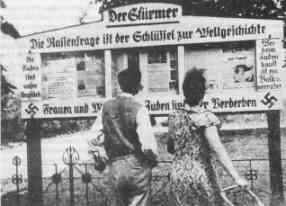
The speeches and articles which I wrote were meant to inform the public on a question which appeared to me one of the most important questions. I did not intend to agitate or inflame but to enlighten. Anti-Semitic publications have existed in Germany for centuries. A book I had, written by Dr. Martin Luther, was, for instance, confiscated. Dr. Martin Luther would very probably sit in my place in the defendants' dock today, if this book had been taken into consideration by the Prosecution. In the book The Jews and Their Lies, Dr. Martin Luther writes that the Jews are a serpent's brood and one should burn down their synagogues and destroy them . . . .
Even before the coming to power, there were, in every Gau, weekly journals that were anti-Semitic, and one daily paper called the Völkischer Beobachter in Munich. Apart from that, there were a number of periodicals which were not working directly for the Party. There was also anti-Semitic literature. 40
You must say farewell to the hope that you can expect any action from the parties of the Right on behalf of the freedom of the German people. The most elementary factor is lacking: the will, the courage, the energy. Where then can any strength still be found within the German people? It is to be found, as always, in the great masses: THERE ENERGY IS SLUMBERING AND IT ONLY AWAITS THE MAN WHO WILL SUMMON IT FROM ITS PRESENT SLUMBER AND WILL HURL IT INTO THE GREAT BATTLE FOR THE DESTINY OF THE GERMAN RACE. [For the full text, Click here.]
1923 April 26 A shoot-out in the streets of Munich, between groups of Communists and National Socialists, results in four wounded. 43THEREFORE WE NATIONAL SOCIALISTS STAND FOR COMPULSORY MILITARY SERVICE FOR EVERY MAN. If a State is not worth that—then away with it! Then you must not complain if you are enslaved. But if you believe that you must be free, then you must learn to recognize that no one gives you freedom save only your own sword. What our people needs is not leaders in Parliament, but those who are determined to carry through what they see to be right before God, before the world, and before their own consciences—and to carry that through, if need be, in the teeth of majorities. And if we succeed in raising such leaders from the body of our people, then around them once again, a nation will crystallize itself . . . . It is the pride of our Movement to be the force which shall awake the Germany of fighters which yet shall be. [For the full text, Click here.]
1923 April 31 One of Hitler's aims is to replace "Democratic-Jewish-Marxist" socialism with his own nationalist variety. Thus, the name "National Socialist" for his party. In an interview later in the year, Hitler will explain: "Socialism is the science of dealing with the common weal. Communism is not Socialism. Marxism is not Socialism. The Marxians have stolen the term and confused its meaning. I shall take Socialism away from the Socialists." 45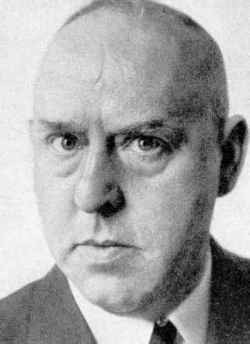
An almost electric tension held the members present. Cigarettes were smoked incessantly in a nervous, jerky fashion; tempers were short under the strain. It was unlike any other gathering here preparatory to a political rally—and it differed in another way, too. In addition to wearing their field-gray uniforms, the men tonight had their steel helmets and their rifles. They were in earnest.
When the telephone shrilled, every member gave a start and every eye became riveted on the instrument.
It was the order from Munich, telling them to come ahead, for whatever May Day might bring.
The tension was broken; only anticipation was present now and the ex-soldiers were like schoolboys in their horseplay, as they trooped through the darkness.
A number of old lorries had been offered for the use of the insurgents, and these we manned now to drive about the town of Landshut and pick up our cohorts . . . . Our ramshackle conveyances, lighted only by lanterns, rolled up and down the streets, pausing here and there to pick up a member. It was never necessary to send in a summons. No sooner had we come to a halt, than the door of the house would open and a dark figure would come running to climb aboard. 48
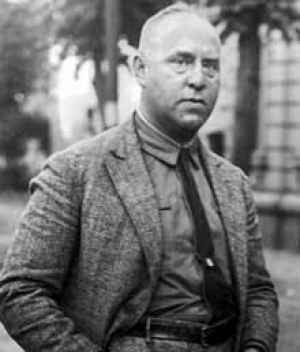
Then, shortly after eleven, a strong Reichswehr detachment swung into view, flanked right and left by the green-uniformed forces of the police. At sight of them, Hitler's face contorted with rage; his body crouched forward, as though he would spring at these men who interfered with his destiny, and whip them single-handed. For a moment I thought he was on the point of an hysterical fit, and then he saw Captain Ernst Röhm . . . .
A soft cry sounded behind Hitler's clenched teeth and he leaped toward Röhm like a maniac, seizing him by the tunic with trembling hands. "Have you betrayed us?" he screamed in a frenzy. "Explain! Why are you with these traitors? What has happened?"
By that time, the demonstrators of the Oberwiesenfeld had been surrounded by the military; the situation was already hopeless, and Roehm seemed unimpressed with Hitler's fury. He looked at him coldly, and took his time before he said in a superior manner:
"Control yourself. The time is not yet ripe."
The two men gazed into each other's eyes, and Hitler was the one to give way. Perhaps the ingrained military training of years, his subconscious acceptance of their corporal-and-captain relationship, had something to do with it. In a moment, his hands fell from Röhm's uniform, and Hitler dropped his eyes. He turned away . . . .
We have both the hope and the faith that the day will come, on which Germany shall stretch from Koenigsberg to Strasburg, and from Hamburg to Vienna. We have faith that, one day, Heaven will bring the Germans back into a Reich, over which there shall be no Soviet star, no Jewish star of David; but above that Reich, there shall be the symbol of German labor: the Swastika. And that will mean that the first of May has truly come. [For the full text, Click here.]
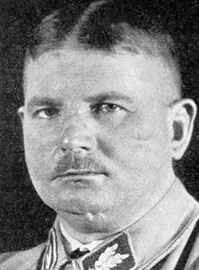
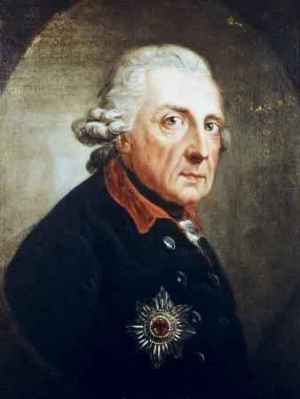
If a Frederick the Great were to appear again today, they would probably pass emergency legislation aimed at him! You would think that a "statesman" who was a failure would disappear for ever. But in a parliamentary state, he merely goes back to the end of the line and waits for another turn. And when he reaches the front of the line, he is back in power. Even the ancient republics, with their rigid conception of the state, were ruled by a dictator in times of national emergency. When the lives of nations are at risk, national and provincial parliaments are useless; only giants can save the nation.

The tasks arose from my position, which at that time had the title "Commander of the SA." At first it was important to weld the SA into a stable organization, to discipline it, and to make of it a completely reliable unit, which had to carry out the orders that Adolf Hitler or I should give it. Up to that point, it had been just a club, which had been very active, but which still lacked the necessary construction and discipline. I strove from the beginning to bring into the SA those members of the Party who were young and idealistic enough to devote their free time and their entire energies to it.
For at that time, things were very difficult for these good men. We were very small in number, and our opponents were far more numerous. Even in those days, these men were exposed to very considerable annoyances, and had to suffer all sorts of things. In the second place, I tried to find recruits among workmen, for I knew that among workmen, particularly, I should enroll many members for the SA.
At the same time, we had naturally to see to it that the meetings of the Party, which generally were limited at that time to Munich, Upper Bavaria and Franconia, could actually be carried through in a satisfactory manner, and disturbances prevented. In most cases, we succeeded. But sometimes we had a strong party of our opponents present. One side or the other still had weapons from the war, and sometimes critical situations arose, and in some cases we had to send the SA as reinforcements to other localities. In the course of the year 1923, the contrast between Bavaria and the Reich became even stronger. One could see that the Bavarian Government of that time wanted to go a different way to that of the Reich Government. The Reich Government was influenced strongly by Marxism, but the Bavarian Government was free from that, it was bourgeois. 56
Goering was a complete condottiere, the pure soldier of fortune, who saw in the Nazi Party a possible outlet for his vitality and vanity. Nevertheless, he had a jovial, extrovert manner and I found myself very much at home with him . . . . Göring had a certain humorous contempt for the little squad of Bavarians around Hitler, whom he regarded as a bunch of beer-swillers and rucksackers with a limited, provincial horizon. 58
1923 May 11 With the May Day events fresh in mind, the Bavarian government institutes emergency legislation banning public demonstrations. In practice, the law is usually only enforced against leftist groups, while those on the right practically own the streets. 59I immediately recognized my man by his stupidly scarred face, lost in the confused uproar of the hall. When he saw me mount the platform and begin to speak, he fixed his eyes upon me, as if I were a ghost. The meeting ended in a terrible brawl, in the course of which Schreck was arrested. I took my companion back to Obersalzberg. He was dumbfounded. I begged him to keep my secret." [See: 1923 Mid-August, below] 62
1923 July 14 The Munich police, having discovered a backbone somewhere, confront Hitler concerning a meeting scheduled in the evening at the Circus Krone. They tell him that, pending the results of the ongoing investigation into the May Day incident, party banners are disallowed, both in the streets and indoor at meetings. Hitler is both furious and dismissive; according to the police report: "Hitler replied to me that he had rented the Circus Krone, and could do in the Circus whatever he wanted." In this case, Hitler is as good as his word.
Hitler had sent word to his hostess that he had to attend an important meeting, and would not arrive until late: I think it was about eleven o'clock. He came, nonetheless, in a very decent blue suit, and with an extravagantly large bouquet of roses, which he presented to his hostess as he kissed her hand. While he was being introduced, he wore the expression of a public prosecutor at an execution. I remember being struck by his voice when he thanked the lady of the house for tea or cakes, of which, incidentally, he ate an amazing quantity. It was a remarkably emotional voice, and yet it made no impression of conviviality or intimacy, but rather of harshness. However, he said hardly anything, but sat there in silence for about an hour; apparently he was tired.
Not until the hostess was so incautious as to let fall a remark about the Jews, whom she defended in a jesting tone, did he begin to speak, and then he spoke without ceasing. After a while, he thrust back his chair and stood up, still speaking, or rather yelling, in such a powerful penetrating voice as I have never heard from anyone else. In the next room, a child woke up and began to cry. After he had, for more than half an hour, delivered a quite witty but very one-sided oration on the Jews, he suddenly broke off, went up to his hostess, begged to be excused, and kissed her hand as he took his leave. The rest of the company, who apparently had not pleased him, were only vouchsafed a curt bow from the doorway. 65
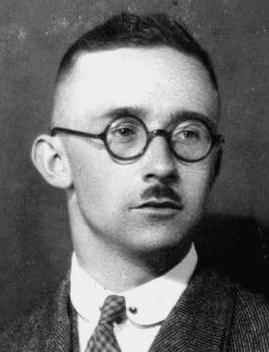
There are two things which can unite men: common ideals and common criminality. We have inscribed upon our banner the great Germanic ideal and, for that ideal, we will fight to the last drop of our blood. We National Socialists have realized that, from the international cesspool of infamy, from the Berlin of today, nothing can come to save the Fatherland. We know that two things alone will save us: first, the end of internal corruption, the cleansing out of all those who owe their existence simply to the protection of their party comrades. Through the most brutal ruthlessness towards all party officials, we must restore our finances. It must be proved that the official is not a party man, but a specialist! The body of German officials must once more become what once it was. But the second and the most important point is that the day must come when a German government shall summon up the courage to declare to the Foreign Powers: 'The Treaty of Versailles is founded on a monstrous lie. We refuse to carry out its terms any longer. Do what you will! If you wish for war, go and get it! Then we shall see whether you can turn seventy million Germans into serfs and slaves!' [For the full text, Click here.]
1923 August 10 Gottfried Feder writes to Hitler, complaining that the Fuehrer's lifestyle is drawing criticism within the party. Feder admits that he shares their critique. In particular, he has had it with Hitler's "anarchy in the allocation of time" (translation: Feder is upset that Hitler keeps whatever hours he likes, and expects others to adjust to his erratic schedule). "We gladly yield first place to you. But we have no understanding of tyrannical tendencies." 67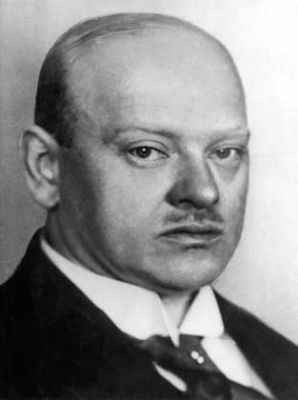
For a long time a meeting had been arranged at Berchtesgaden. The moment came when it was no longer possible to avoid it. "German Day at Berchtesgaden. Present: Comrade Adolf Hitler." Great sensation at Obersalzberg. The whole boarding-house, forty to fifty people in all, came down into the valley to see the phenomenon . . . . I came down by motor-cycle. At the Crown Inn, I was welcomed by a formidable ovation. All my boarding-house was gathered in front of the door—but the good people were in no way surprised, being convinced that every new arrival was greeted in this vociferous fashion. When I climbed on the platform, they stared at me as if I'd gone mad. When they became aware of the reality, I saw that it was driving them out of their minds. When Wolf returned to the boarding-house, the atmosphere there was poisoned. Those who had spoken ill of Adolf Hitler in my hearing were horribly embarrassed. What a pity! 70
1923 August Kurt Ludecke, who had been lying low since April, had caught up with Hitler in Obersalzberg. When the Inter-State Congress of National Socialists is over, Ludecke, Hitler, Esser, and Amann travel to Linz, Hitler's "Home Town".On the second day, Hitler and I had long talks alone . . . . [Hitler holds forth on the opportunities now open to their Party] "The nation was poised for a drastic change; whoever pulled the first prop from under Berlin might very well succeed, because all Germany would spring up to topple the Government. It was chiefly a question of finding the right moment to jump and the right people to jump with us."
Ludecke agrees to become a sort of foreign ambassador at large for the NSDAP. It is decided to send him off to Italy. Ludecke:
That night we decided to celebrate the new venture in advance. Linz was only a little town, but it was German, which is to say that it boasted the usual quota of beer-gardens and restaurants. To the largest and gaudiest, we made our way . . . .
The big restaurant to which he led me enclosed what seemed like acres of Linz within its walls of abominably painted panels and gilt plaster. We had scarcely sat down before his architect's eye focused on the decorations of the room.
"Baroque," he explained needlessly, pointing at the bulbous cupids and fruity garlands. "Bad baroque. Has it ever occurred to you that there's no such thing as merely poor baroque? The style has no middle quality; when it is not perfect, it's impossible. And, of course, the very spirit of the style, its lush intimacy, makes it dangerous to splash baroque elements over a hall of such dimensions. One might as well gild a barn. But heavens, what a magnificent place this would be for a rally! Why, in this one room alone, I could swing all Linz!"
Roaring cries of "Heil!" swirled around the guests of honor and their entourage. Countless arms with waving handkerchiefs reached out for them; flowers and bouquets rained on them from all sides. It was like the jubilant outcry of hundreds of thousands of despairing, beaten, downtrodden human beings suddenly glimpsing a ray of hope, a way out of their bondage and distress. Many, men and women both, stood and wept. 78
In the evening, Hitler takes the stage at Nuremberg's Festhalle. What Germany needs, he proclaims, is "a nationalist revolution today to restore Germany's might and greatness. We can save Germany from internal and foreign foes, only through blood and sword. We need a revolution, bloodshed, and a dictatorship . . . . We must have a new dictatorship. We need no parliament, no government like the present. We cannot expect Germany's salvation from the present condition, but only through a dictatorship brought through the sword." 79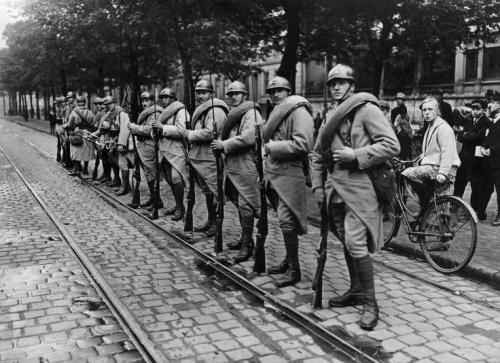
Chancellor Stresemann announced tonight that the Government had decided to abandon passive resistance immediately and unconditionally, and had ordered resumption at once in the Ruhr and Rhineland in all lines of industry.
This decision was reached after a conference at the Chancellor's palace attended by three hundred representative spokesmen from the Ruhr and Rhineland, at which it was unanimously agreed that further opposition to the Franco-Belgian occupation was futile, and that passive resistance must be abandoned.
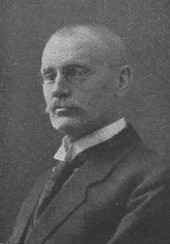
I had the impression that the Reichswehr officers were dissatisfied too, because the march on Berlin was being held up. They were saying: Hitler is a fraud just like the rest of them. You are not attacking. It makes no difference to us who strikes first; we are going along. And I myself told Hitler: The day is coming when I can no longer hold my people. If nothing happens now, the men will sneak away. We had many unemployed in the ranks, fellows who had sacrificed their last pair of shoes, their last suit of clothing, their last penny for their training, and who thought: soon things will get under way and we'll be taken into the Reichswehr and be out of this mess. 88
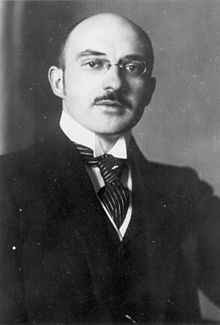
Then, suddenly, the Bavarian Government was completely transformed, when a governor general—I believe he was called that—or something of the sort, was appointed for Bavaria. It was von Kahr, to whom the Bavarian Government was subordinate, and to whom the Bavarian Government delegated all authority. Shortly after that, the Reichswehr conflict developed. The 7th Reichswehr Division, which was stationed in Bavaria, was released from its oath to the Reich, which it had sworn to the Reich Constitution—I do not know its name any longer—that is to von Kahr. This led to the conflict of the Generals von Seeckt and Lossow. The same thing happened with the Bavarian police. The Bavarian Government, at the same time, curried favor with the so-called national associations, which were in part organized along military or semi-military lines and also possessed weapons. The whole thing was directed against Berlin and, as we expressed it, against the "November Republic." We could agree up to that point. [For the full text, Click here.]
1923 September 26 From a Chicago Tribune story—datelined September 26—which will appear in The New York Times on September 27:
Bavaria tonight proclaimed itself a dictatorship. Gustav von Kahr brushed Field Marshall von Ludendorff [sic], Herr Hittler [sic], Premier von Knilling and other candidates aside and became the first Dictator in Bavaria.
The Constitution has been suspended . . . . Among the laws definitely announced suspended are all those guaranteeing freedom of speech, press, assembly, telephone, telegram, secrecy of mail, secrecy and sanctity of person, dwelling and property. Habeas corpus is declared non-existent.
Herr von Kahr is vested with powers to call troops and use troops, arrest anyone he chooses, keep prisoners without trial and seize the property of any one he declares an enemy of the nation. 91
It is hardly necessary to say that for Herr Stresemann the 'internal' enemy is the Deutschvolkische group . . . . One cannot very well expect anything else from this man . . . except the mounting of an attack on patriots . . . . Seeckt's wife like Stresemann's is a Jewess, and influences Seeckt politically . . . .
In well-informed Reichstag circles, it is openly claimed that the government of the Reich, on the basis of agreements with the majority parties, has already firmly determined to establish a dictatorship, presumably under the firm of Ebert-Stresemann-Seeckt . . . . In Reichswehr circles, the really sly ones (the higher ranking officers! The Editor) assumed that Seeckt would sooner or later shove his partners aside and they are therefore making propaganda especially zealously for Seeckt's dictatorship, inside as well as outside the Reichswehr.
For a long time, we waited. Mother was talking to father eagerly, telling him how wonderful the young man was. Presently Wolfgang and I grew impatient and went to the front door to watch for a car coming up the drive, between the borders of the chestnut trees. At last, one turned in from Richard Wagner Street. We called father and mother, and all of us went to greet the visitor at the front door.
A young man jumped out of the car and came toward us . . . in Bavarian leather breeches, short, thick woolen socks, a red-blue-checked shirt and a short blue jacket that bagged about his unpadded skeleton. His sharp cheekbones stuck out over hollow, pasty checks, and above them was a pair of unnaturally-bright blue eyes. There was a half-starved look about him, but something else too, a sort of fanatical look . . . .
His voice took on tone and color and grew deeper and deeper, until we sat like a circle of little charmed birds, listening to the music, although we didn't pay any attention to a word he said. 95
— Great anxiety prevails in Holland regarding recent political developments in Germany and the possibility of a revolution. Detachments of Dutch troops, especially companies of cyclists, have been sent to the German frontier to be ready for emergencies, as the bands of armed and destitute Germans and desperadoes roving about the frontier increase daily, looting and robbing lonely farm houses and residences, often killing the inhabitants. All the Red Cross authorities have also received instructions to hold themselves in readiness. 98
1923 September Inflation: 98,860,000 RM per dollar. 99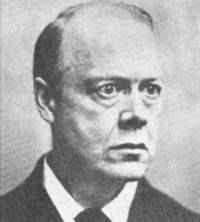
Most respected and dear Hitler, . . . . Your giving me peace of mind has a lot to do with your eye and the gestures of your hands. Your eye is so to speak gifted with hands; it catches hold of a person and holds him tight . . . . As for your hands, they are so expressive in their movements that they can compete with your eyes—Such a man is well able to let a poor tormented mind find peace! . . . .
It is hardly surprising that a man like that can give peace to a poor suffering spirit! Especially when he is dedicated to the service of the fatherland. My faith in Germandom has not wavered for a moment, though my hopes were—I confess—at a low ebb. With one stroke you have transformed the state of my soul. That Germany, in the hour of her greatest need, brings forth a Hitler—that is proof of her vitality . . . that the magnificent Ludendorff openly supports you and your movement: What wonderful confirmation! I can now go untroubled to sleep . . . . May God protect you! 103
Weak but wanting to be hard, half-educated wishing to be an all-rounder (universall), a bohemian who had to be a soldier if he wanted to impress true soldiers. A man mistrustful toward himself and what he was capable of (seine Moeglichkeiten), and so full of inferiority complex toward all who were anything or were on the way to outflank him . . . . He was never a gentleman, even later in evening dress. 109
1923 October 16 Leo Negrelli interviews Hitler for the Italian newspaper Corriere Italiano. Carl Ludecke is responsible for gaining Mussolini's approval for the interview. 110The most vigorous form of terror must be employed; anyone who creates the slightest obstruction must be eliminated. As soon as the decree is issued at least one person must be shot immediately as an example." Gregor Strasser is enthusiastic: "[It] was for me perhaps the most beautiful [thing I had heard] since 1918 because from then I thought things would change. 114
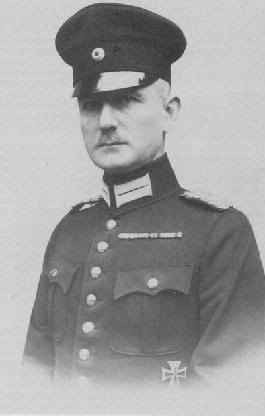
Formerly one little mistake was all it took, and a ministry, a chancellor, had to go." Suddenly raising his voice to a shout, he added, "Today, a Ruhr can disappear, but Stresemann remains! Germany can go to ruin and Stresemann does not go! . . . . [What is needed is] a dictatorship for Bavaria alone . . . . [If it were up to Kahr, he would] capitulate to Berlin in five weeks . . . . For me, Germany's problems will not be solved until the black-white-red swastika banner flies from the palace in Berlin . . . . There is no turning back now—we can only go forward! We all feel that the hour has come, and we will not shirk its demands, but, like the soldier in the field, we will follow the order: Ready yourselves, Germans, and forward march!" 118
1923 October Ludendorff has been meeting frequently with Hitler since the Deutscher Tag (German Day) rally in Nuremberg. Ludendorff had endorsed Hitler on that occasion.
Our house had become the rallying-point, one could almost have called it the political centre of the National Socialists. It was like the continual coming and going in a pigeon loft. Not merely every day, but every hour, there were conferences.
In order to avoid all suspicion, Ludendorff, with masterly acuteness, made a point of busying himself in the garden before the eyes of everybody. He pruned the roses, watered the flowers, and sprayed the lawns, as though he were the most harmless fellow in the world, remote from any thought of political upheavals.
I deplored the fact that there were not at that time men in Germany whom an energetic national spirit would inspire to improve the situation.
"There is but one hope," Ludendorff said to me, "and this hope is embodied in the national groups which desire our recovery. " He recommended to me in particular the Oberland League and, above all, the National Socialist party of Adolf Hitler. All these were leagues of young people and World War veterans who were resolved to fight Socialism as the cause of all disorder. Ludendorff greatly admired Hitler. "He is the only man," he said, "who has any political sense." 119
As long as I remain at my post, I shall not cease to repeat that salvation for Germany cannot come from one extreme or the other, neither through help from abroad nor through revolution, whether of the Right or the Left. It is only by hard work, silently and persistently pursued, that we can survive. This can only be accomplished on the basis of the legal constitution. To abandon this principle is to unleash civil war. In such civil war, none of the parties would succeed in winning; it would only be a conflict which would end only in their mutual destruction, a conflict similar to that of which the Thirty Years War provides so terrible an example. 121
1923 November 6 Seisser, Lossow, and Kahr—the triumvirate of Bavaria—meet with heads of the "patriotic" associations, though Hitler is excluded. Hermann Kriebel, a retired lieutenant colonel, former Freikorps member, and now the military leader of the Kampfbund, is one of those present. Lossow proclaims that, if they thought that a putsch had a 51% chance of success, they would back it. Until then, they remain prepared to maintain Kahr in office, and avoid any putsch. 122How can we hope to master the economic crisis that already is so great, and the miseries of the coming winter that widespread unemployment will bring, unless all decent men work together, regardless of faith, position, or party? How else can we eradicate the blind, raging hatred for our fellow Jewish citizens and other ethnic groups, a hatred that flies through the land screaming "Guilty!" but never asking proof? And how else can we avoid a civil war, which would wreak new, untold desolation and seal the ruin of our poor nation in the blood of self-inflicted wounds? 125
1923 November 7 Kahr flat out refuses to meet privately with Hitler at any time in the near future. 126


Written by Walther Johann von Löpp Copyright © 2011-2016 All Rights Reserved Edited by Levi Bookin — Copy Editor European History and Jewish Studies
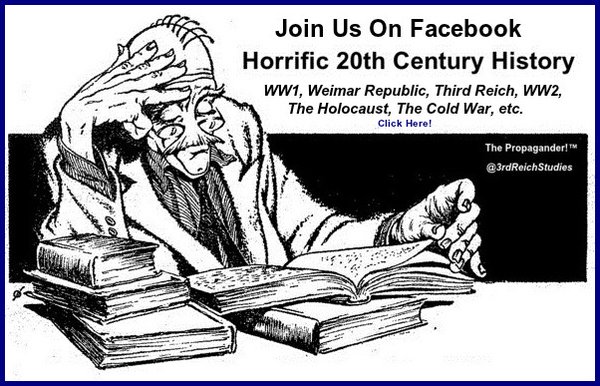
Twitter: @3rdReichStudies



Disclaimer: The Propagander!™ includes diverse and controversial materials--such as excerpts from the writings of racists and anti-Semites--so that its readers can learn the nature and extent of hate and anti-Semitic discourse. It is our sincere belief that only the informed citizen can prevail over the ignorance of Racialist "thought." Far from approving these writings, The Propagander!™ condemns racism in all of its forms and manifestations.
Fair Use Notice: The Propagander!™may contain copyrighted material the use of which has not always been specifically authorized by the copyright owner. We are making such material available in our efforts to advance understanding of historical, political, human rights, economic, democracy, scientific, environmental, and social justice issues, etc. We believe this constitutes a "fair use" of any such copyrighted material as provided for in section 107 of the US Copyright Law. In accordance with Title 17 U.S.C. Section 107, the material on this site is distributed without profit to those who have expressed a prior interest in receiving the included information for research and educational purposes. If you wish to use copyrighted material from this site for purposes of your own that go beyond 'fair use', you must obtain permission from the copyright owner.